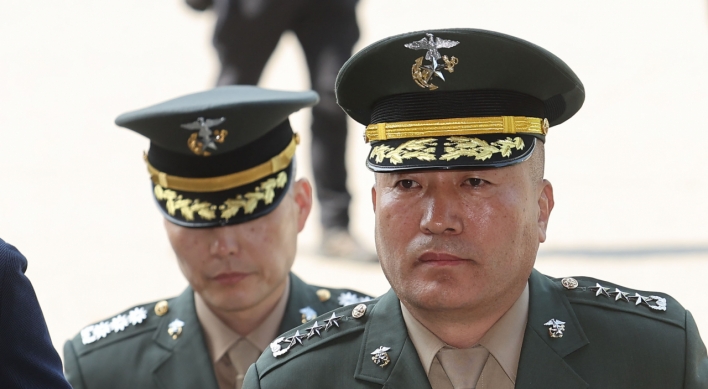[Editorial] Upgrading US alliance
Summit with Biden brings focus to nuke deterrence, IRA and CHIPS Act issues
By Korea HeraldPublished : March 10, 2023 - 05:31
Seoul and Washington said President Yoon Suk Yeol will pay a state visit to the US on April 26.
Yoon will have his third meeting with US President Joe Biden. Biden visited Seoul in May 2022, 11 days after President Yoon was inaugurated. They met again on the sidelines of the ASEAN Summit in Phnom Penh, Cambodia, in November.
The last time a South Korean president paid a state visit to the US was 12 years ago. Yoon is the second leader invited by Biden for a state visit after French President Emmanuel Macron, who visited Washington in December last year.
The US‘ treatment of Yoon’s visit with the highest level of courtesy reflects not only the symbolic characteristics of the 70th anniversary of the Korea-US alliance but the growing strategic value of South Korea.
The US-China competition for hegemony is deepening the confrontation between South Korea, the US and Japan on one side and North Korea, China and Russia on the other. South Korea is at the forefront of the confrontation. Its clear position will be essential to the US’ East Asia policy and Indo-Pacific Strategy.
The increasingly acute clash between the two camps is an unavoidable reality for South Korea. Close cooperation with the US and Japan is indispensable.
Yoon will visit Tokyo on March 16 and 17 at the invitation of the Japanese government. He is scheduled to hold a summit meeting with Japan's Prime Minister Fumio Kishida during his visit to Japan. The Yoon administration boosted the possibility of a summit with Japan by proposing a solution to the forced labor compensation dispute. If a summit meeting among Korea, Japan and the US takes place on the sidelines of the G-7 summit in Hiroshima, Japan in May, the three-nation cooperation will be further strengthened.
It is essential and urgent to strengthen Washington’s extended deterrence against North Korea‘s nuclear threats.
North Korea possesses scores of nuclear warheads and obstinately develops missiles that can strike continental America, not to mention South Korea and Japan.
Seoul wants Washington to take steps to guarantee its nuclear umbrella. South Koreans who worry about the North‘s nuclear attacks increasingly believe that their country should arm itself with nuclear weapons.
Eyes are also on whether Seoul will solve subsidy issues related to Washington‘s Inflation Reduction Act and Chips and Science Act.
The IRA gives tax credits to buyers of electric or fuel cell vehicles “assembled only in North America.” Hyundai Motor and Kia Corp. could lose ground in the US market as they make EVs at plants here for export to the US.
The CHIPS Act offers subsidies and tax incentives to foreign chipmakers for setting up factories in the US, but a number of unusual conditions involved in applying for subsidies -- such as sharing cash flows or returns exceeding applicants‘ projects and turning over information about profit projections and factory production -- would put Korean and other non-US chipmakers in a difficult position.
Washington will likely be more attentive when Korea and Japan express their common positions in one voice. In this sense, the sequence of Yoon‘s summit meetings -- first with Japan then with the US -- is desirable. Yoon must bring up issues related to the acts and induce adjustment in the US position.
South Korea is positively considering joining the “Chip 4” and “Quad” in spite of a strong backlash expected from China.
The Chip 4 is the US-envisioned semiconductor supply cooperative grouping of South Korea, the US, Taiwan and Japan. The Quad is the quadrilateral security dialogue, which involves regular summit meetings of the US, Japan, Australia and India.
In spite of the backlash at home, Yoon proposed a solution to the forced labor compensation issue. He is sparing no efforts to improve South Korea‘s bilateral ties with Japan and strengthen three-way cooperation with the US and Japan.
South Korean companies are investing large sums of money in building factories in the US. There should be no unfair disadvantages. Now is the time to upgrade the US alliance beyond security to economy and technology.
-
Articles by Korea Herald



















